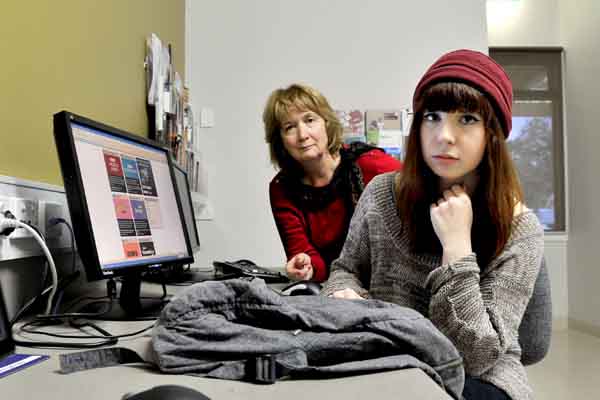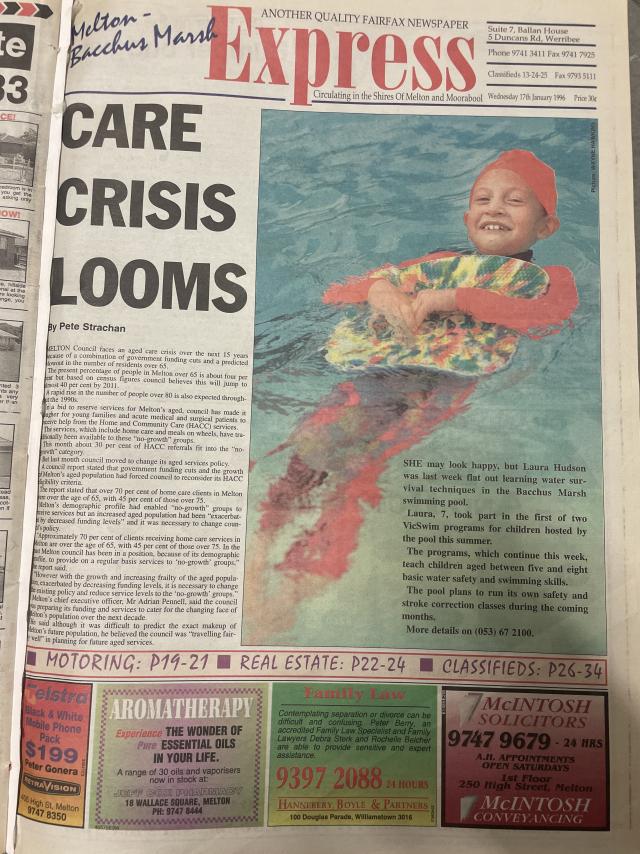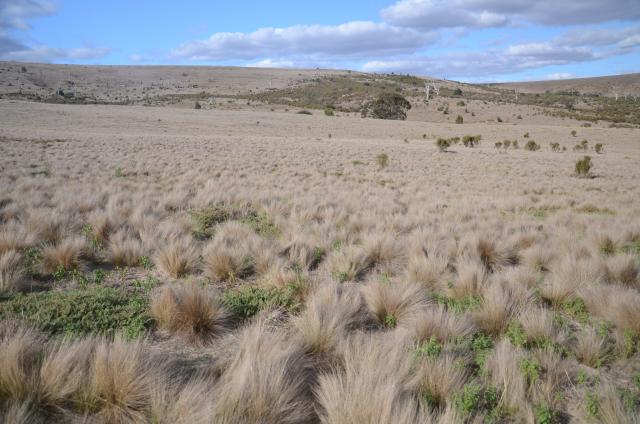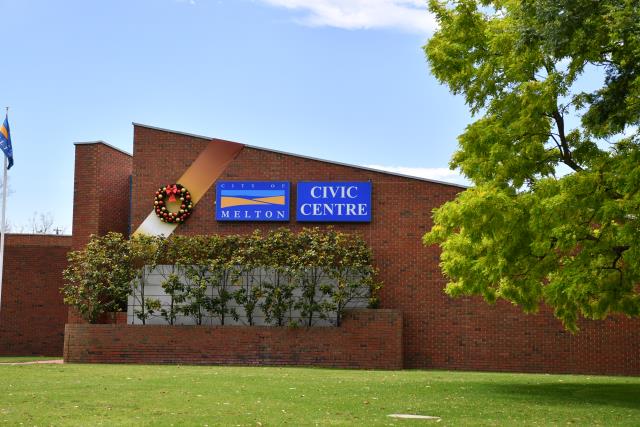STUDENTS and staff at a Bacchus Marsh community college fear training and employment prospects could be hampered after the state government slashed funding to TAFE and vocational courses.
Experts have warned that job losses, campus closures and fee increases for students could devastate the sector after the government swung the axe in last Tuesday’s budget.
Bacchus Marsh student Celeste Worthing joined The Laurels’ Bacchus Marsh Community College Victorian Certificate of Applied Learning (VCAL) program to finish her year12 equivalent.
The 18-year-old is also studying vocational subjects like hospitality to prepare for work in the industry next year.
Ms Worthing wants to work as a hospitality professional, organising large events, or in a management role working overseas and is excited at the prospect of diving straight into work next year.
But she’s concerned her options for getting more skills and training have been restricted.
“This year I am studying certificate II in hospitality and I’d like to complete certificate III as well to then start work next year. But we’re now only allowed to have two funded courses a year, and because I’m completing VCAL, too, I would have to pay for certificate III on my own.”
Eighty per cent of TAFE courses will have fee subsidies slashed, with those for courses like hospitality, fitness and business hit hardest.
The cuts are predicted to save the government $100million next year.
Funding rates for industry courses with skill shortages, such as aged care, apprenticeships and trades, will be increased.
Laurels chief executive Coral Arnold said the cuts were yet another burden, after VCAL co-ordination funding was cut late last year.
“I think it’s short-sighted. The reason funding was increased was to allow more people to do these courses and prepare young people for the workforce.”
Ms Arnold said the latest cuts would put a huge financial stress on the school.
Jobs won’t be lost at this stage at the school, which employs only two full-time teachers, but other resources such as books, school trips and computer services will be trimmed.
“Isn’t the focus supposed to be wanting skilled students exiting these systems?” Ms Arnold said. She added that caps on student fees would be removed, which meant training organisations could charge more, but many students couldn’t afford higher fees in lump-sum payments.
“I remain optimistic that people will want to train, but the pressure will be on training organisations on how they charge students in light of the cuts. We have some great outcomes with our students here so I remain optimistic, and I hope the federal and state governments start to believe in the system more.”
Victoria University, which offers TAFE courses at its Melton campus, will lose about $29million in vocational education funding next year, according to vice-chancellor Peter Dawkins. “There will be implications for the viability of some courses and the reductions will ultimately affect our workforce profile.”
As reported in The Age last week, Higher Education and Skills Minister Peter Hall said he shared the “emotions of shock, incredulity, disbelief and anger” of TAFE leaders when they were briefed on the cuts last Friday.

















